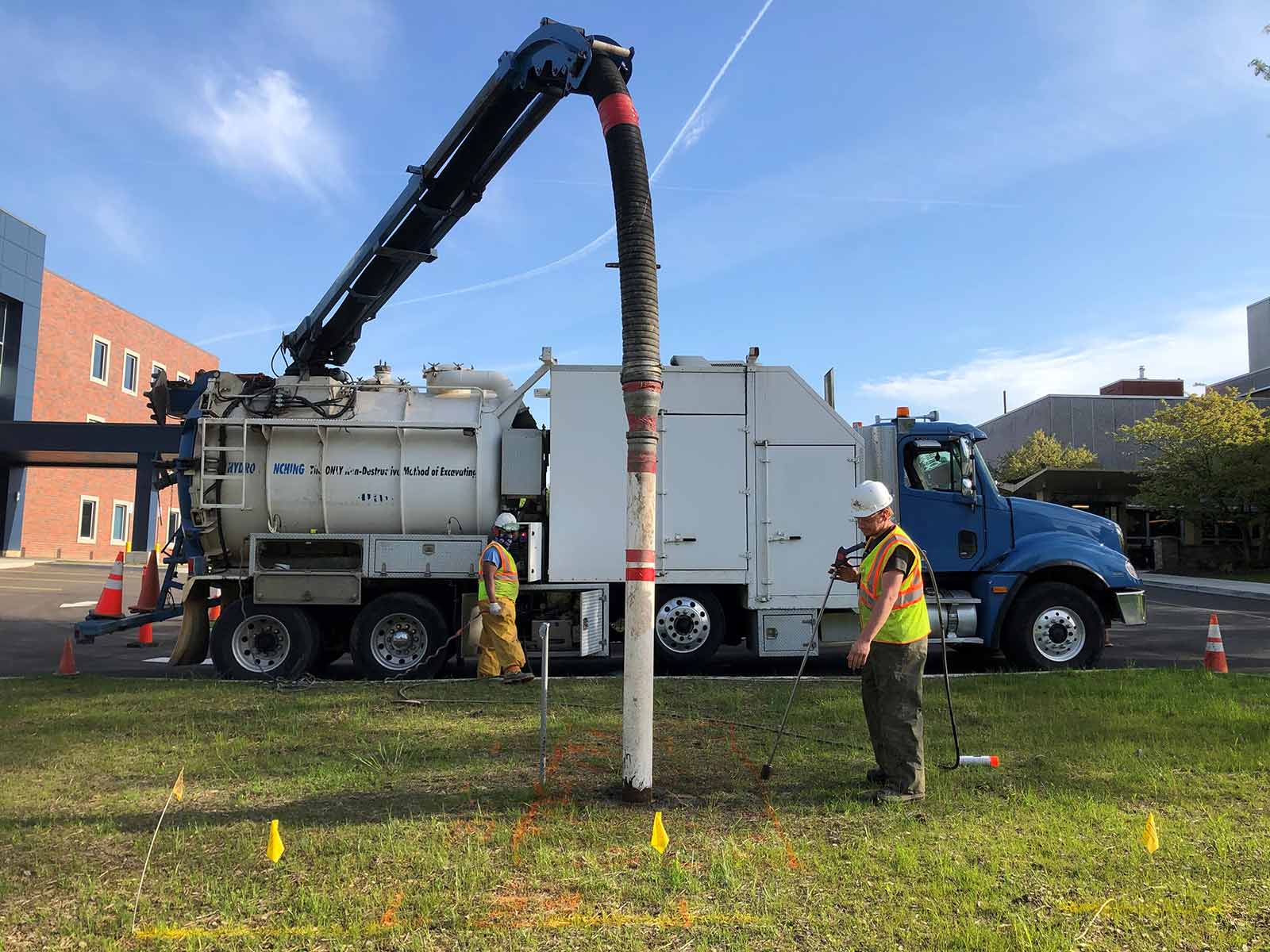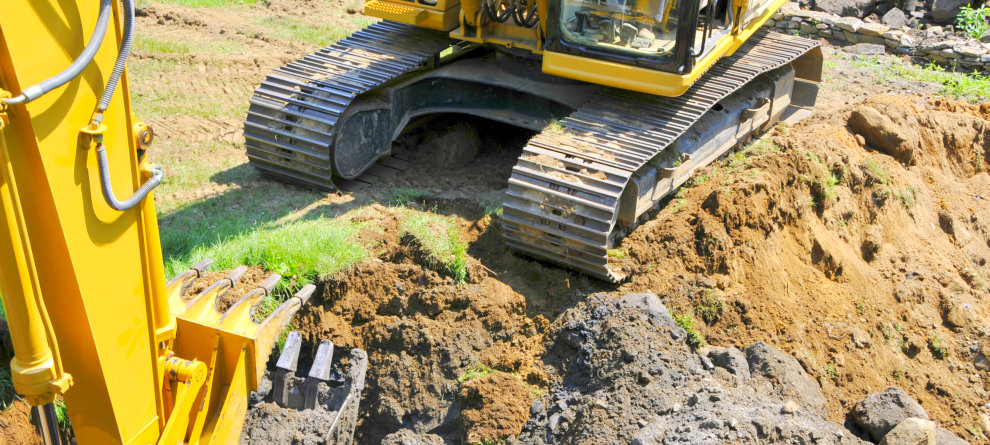Residential Excavating Ohio - Specialized Excavation for Ohio Homes
Residential Excavating Ohio - Specialized Excavation for Ohio Homes
Blog Article
Comprehensive Excavation Approaches: Mastering the Basics for Success
In the realm of building and construction and civil engineering, the importance of effective excavation methods can not be overemphasized. The cautious preparation, precise implementation, and precise interest to information required in excavation projects require an extensive technique that incorporates various basic elements. From first soil analysis to the execution of security actions and regular progress tracking, mastering these core elements is necessary for attaining success in any excavation undertaking. However, truth mastery lies not just in understanding these basics however in effortlessly incorporating them to browse the complexities of excavation jobs with finesse.
Comprehending Excavation Project Planning

Effective excavation projects are constructed on the foundation of comprehensive and meticulous planning. The first phase of any excavation task is the drawing board, where vital choices are made that can dramatically influence the outcome of the job. During this phase, it is important to collect all pertinent info concerning the website, including topographical studies, dirt structure, and any type of prospective hazards that might exist. Understanding the task budget plan, timeline, and scope restraints is important for developing a detailed excavation plan that guarantees the task's success.
One trick facet of excavation project preparation is the advancement of a detailed timeline that outlines the sequence of deadlines, milestones, and activities. This timeline acts as a roadmap for the project group, permitting them to track progression and make necessary adjustments to ensure the task remains on timetable. Additionally, a distinct spending plan that makes up all costs, including equipment service, labor prices, and products, is essential for preventing cost overruns and hold-ups. By thoroughly taking into consideration all these elements during the drawing board, excavation projects can be executed efficiently and effectively, bring about successful outcomes.
Dirt Analysis and Site Assessment
Performing comprehensive dirt evaluation and site examination is a critical action in the preparation phase of any kind of excavation job. Dirt analysis involves establishing the composition, structure, and properties of the soil at the excavation site. This info is important for recognizing the dirt's bearing ability, moisture web content, and possibility for disintegration, which are vital consider identifying the excavation approaches and tools required for the task.
Website analysis exceeds soil analysis and encompasses a wider evaluation of the total website problems. This analysis consists of recognizing any potential hazards, such as underground utilities, ecological concerns, or unstable surface, that can influence the excavation procedure. By thoroughly evaluating the website, task supervisors can develop efficient excavation techniques that prioritize safety, performance, and ecological defense.
Using sophisticated innovations like ground-penetrating radar, soil sampling, and drone studies can boost the precision and effectiveness of soil analysis and site analysis. Investing time and resources in these preliminary steps can eventually conserve time and avoid pricey hold-ups or complications throughout the excavation procedure.
Equipment Choice and Use
Efficient excavation tasks count greatly on tactical tools selection and usage browse around here to guarantee ideal performance and efficiency. Choosing the best tools for the task is critical in taking full advantage of efficiency and lessening downtime. Elements such as the kind of dirt, deepness of excavation, and project scope play a significant duty in determining one of the most appropriate equipment for the job available.

Along with choosing the appropriate tools, proper use is key to job success. Operators must be educated to deal with the tools safely and efficiently - lancaster trenching. Regular maintenance checks and timely repair work assist stop malfunctions and guarantee consistent performance throughout the job
Safety And Security Steps and Regulations Compliance
In the realm of excavation projects, prioritizing precaution and compliance with regulations is critical to guaranteeing a protected and legally audio operational setting. Precaution encompass a variety of techniques, including conducting extensive website analyses, carrying out appropriate signs and obstacles, and giving ample security training for all employees associated with the excavation process. Adherence to guidelines, such as OSHA demands in the United States, makes certain that the excavation job fulfills the needed requirements to safeguard employees, onlookers, and the surrounding setting.

Tracking Progress and Adjusting Strategies
How can predict supervisors effectively track the advancement of excavation tasks and adapt their approaches accordingly to maximize results? Monitoring progression is crucial for guaranteeing that excavation projects remain on track and satisfy deadlines. Job managers can utilize numerous tools and strategies to track development, such as daily report card, routine website assessments, and advanced surveillance modern technologies like drones and GPS tracking systems. By continually checking the project's innovation, supervisors can recognize any potential hold-ups or issues beforehand and take positive actions to resolve them.

Final Thought
Finally, mastering the basics of comprehensive excavation approaches is necessary for the success of any type of project. By understanding job planning, assessing soil and website conditions, selecting ideal devices, abiding with safety and security policies, and keeping an eye on development, project managers can ensure a smooth and reliable excavation process. Executing these approaches will bring about successful results and minimize prospective risks or problems throughout the excavation project.
The preliminary stage of any excavation job is the preparation stage, where essential decisions Home Page are made that can substantially impact the result of the task. Understanding the job budget plan, timeline, and range restraints is essential for producing an extensive excavation strategy that guarantees the job's success.
Just how can project supervisors successfully track the advancement of excavation projects and adapt their methods as necessary to optimize outcomes? By closely keeping an eye on progression and being eager to adapt techniques, job supervisors can improve the general success of excavation jobs.
By comprehending project preparation, analyzing soil and website problems, selecting suitable devices, conforming with security policies, and keeping track of development, job supervisors can guarantee a smooth and effective excavation process.
Report this page